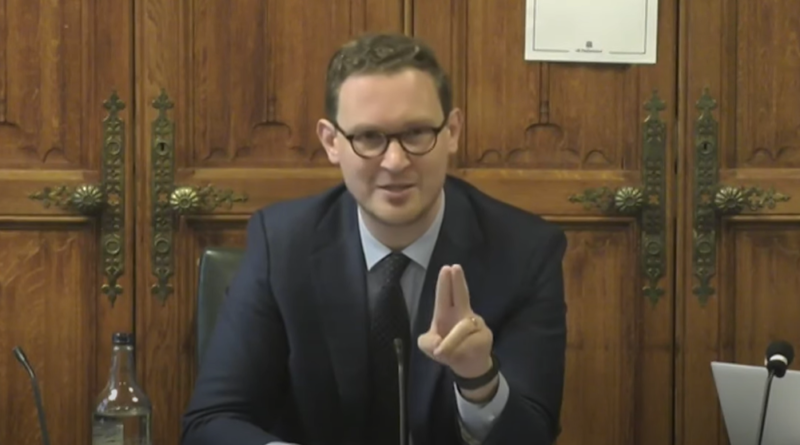UK MP grills Amazon executive over algorithmic firing through wearable trackers
‘There’s an algorithm here tracking a human worker, the computerized system is saying this person isn’t quick enough and then you were going to sack him based on what the algorithm decided whether he was productive or not. That’s an issue isn’t it?’
Darren Jones, a Labour MP for Bristol North West in the United Kingdom, grilled an Amazon executive over the company’s use of surveillance devices on employees working at ‘fulfillment centers’.
Amazon’s Head of Public Policy in Europe, Brian Palmer, was under the spotlight at the BEIS Select Committee, where the Labour MP persistently challenged him on the tech giant’s algorithmic monitoring and subsequent firing of employees.
Amazon compels factory workers to wear tracking devices that scrupulously monitor their activity on the job, from productivity to how long they spend taking bathroom breaks. Three violations of what Amazon regards as incorrect results in the automatic firing of the employee, and it was on this topic that Jones pressed the Amazon exec.

“I represent a constituency that has one large Amazon fulfillment center and another one just on the border. A couple of years ago now, there was a constituent who was 63, he was working with you just to fill his time just before his pension,” Jones began.
“And he came to see me in my surgery to tell me that – I don’t know if it was a wristband or a device or a tablet – but he had some kit that basically told him he wasn’t packing things quickly enough and he had two strikes already and he had to go and see his ‘productivity manager’.
“And the productivity manager said: ‘Why are you not packing things more quickly? The system is telling us you’re not being productive enough.’
“And he said: I’m 63, I’m working as quickly as I can, it’s pretty cold in here, I can’t go any quicker.”
“This was your technology tracking that worker’s productivity in packing: that is surveilling the worker, isn’t it, not the goods?
- “I’m not familiar with that particular example,” Amazon’s Palmer responded in an attempt to wriggle out of the question, before Jones pressed him for a straight answer.
“I don’t want you to answer on the individual case because that’s a cop out of an answer. I want you to answer based on the example,” Palmer said.
“Do you track the productivity of your workers in your warehouses? Yes or no.”
- “Yes,” Palmer responded.
“So what you just said to the committee that you don’t track the worker is not true, is it?”
- “What I said was that the systems are not focused on tracking individual workers. That their primary focus is not to track individual productivity.”
“You understand from the worker perspective, if they’ve got a bit of kit or a device telling them to be quicker and quicker all of the time, that feels like the focus is on them and not on the goods.”
“He [the worker] told me he would be fired if he had three strikes,” Jones added, after the Amazon exec claimed that the company did productivity was not a factor in employee evaluation.”
When pressed as to whether a third strike would’ve led to his productivity tracker, Palmer claimed it was a “very very small minority” but Jones pressed for a direct answer.
“It’s really important you answer the question I’m asking you. I’m asking you, if someone has three productivity flags on the system, can they be fired at that point?”
- “Yes,” Palmer said, after some stuttering and mumbling
“Do you not recognize that’s a problem? There’s an algorithm here tracking a human worker, the computerized system is saying this person isn’t quick enough which, to be fair to him, the guy was 63, and then you were going to sack him based on what the algorithm decided whether he was productive or not. That’s an issue isn’t it?”
- “To be clear, the algorithm is not making those decisions,” the Amazon exec said.
“The conversation he had with his productivity manager was, well the system told me you’re not being productive enough. That’s not a human in the loop. That’s a human telling another human what the computer told him.”




